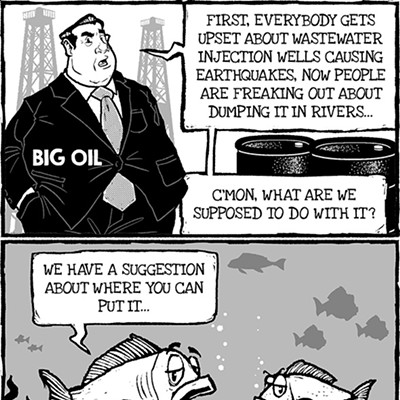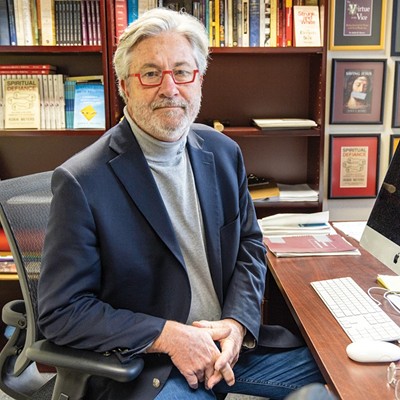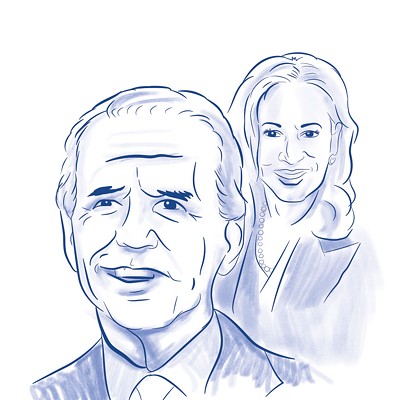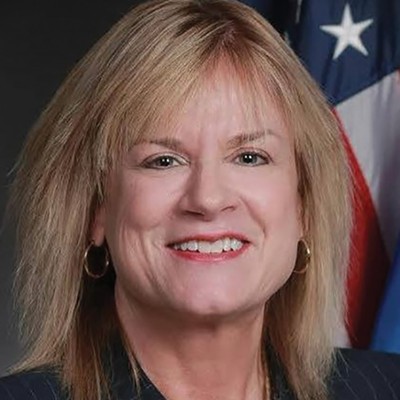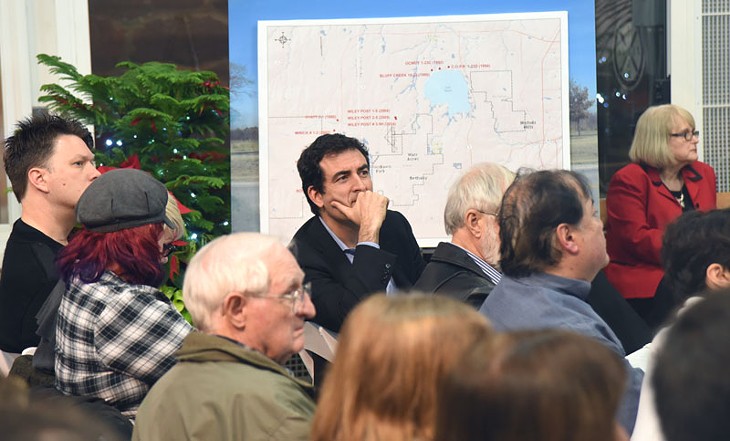
In one of America’s conservative capitals where oil and gas flows heavily through the local economy, the reversal of a local energy company’s plan to drill near Lake Hefner was a rare win for progressives.
“It feels good for progressives,” said Kurt Hochenauer, local professor and author of the popular liberal blog OkieFunk.com. “It felt like a real victory that our voices would be heard.”
The drilling proposal from Pedestal Oil Co. drew public criticism this month and a city-hosted public forum on Dec. 18 brought hundreds of protesters, followed by hundreds more emails and calls to city hall.The project still had several hurdles to clear before gaining city approval, but Pedestal announced last week it was backing down.
The public outcry was not just a reminder that Oklahoma City is home to a liberal community, but it was a highlight of Ward 2 Councilman Ed Shadid’s popularity with his base and his ability to draw a crowd, even on issues that might put him in the minority.
Many of the city’s liberal websites and activists praised Shadid for drawing a crowd to the public forum, which was held at a venue too small for the audience that showed up mostly through word of mouth, including social media posts by Shadid.
“With the exception of Ward 2 Councilor Ed Shadid ... city officials at the meeting were inept,” Hochenauer wrote on his blog following the meeting.
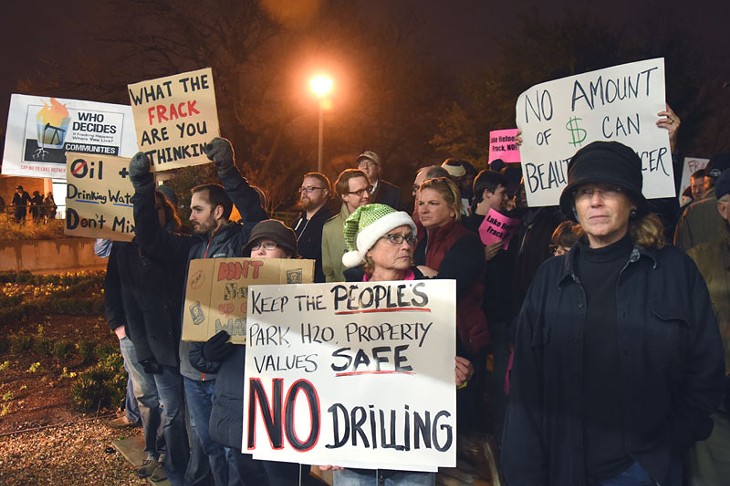
While Shadid failed to gain city-wide appeal in his 2014 mayoral bid, his success in sparking outrage over Pedestal’s drilling proposal highlighted his role as the council’s progressive member, which could make him tough to beat in the upcoming council election, even with a local activist challenging his reelection bid.
Shadid has already drawn two challengers for the March race, including James Cooper, a local professor and activist. Following Pedestal’s decision not to drill near the lake, Cooper praised the public for its opposition.
“Thank you to everyone who made their voices heard in this very important debate,” Cooper posted on his Facebook page. “You got informed, you stood up, you spoke out, and you reminded everyone just how important Lake Hefner is to our city.”Like Shadid, Cooper is active in the city’s progressive community and political observers believe he could sway voters away from Shadid in the LGBT community, among college students and Democrats, which are segments of the population with a strong presence in Ward 2.
However, Shadid also has demonstrated an ability to garner support from these progressive communities and the Lake Hefner drilling issue was the latest example.
“People really felt empowered by the process,” said Shadid, who has talked consistently about his desire to give a voice to residents he feels are often overlooked. “They see how they really impacted public policy. It was wonderful to witness.”Shadid has regularly taken positions that put him in the minority on the council horseshoe, but the recent drilling controversy demonstrated his reach and popularity with progressives, even if it does little to change the city’s overall political landscape.
“I don’t know if this changes anything in terms of city politics,” Hochenauer said. “The people who showed up, that’s Shadid’s base, but as we saw in the [mayoral] election, that base remains limited.”
Hochenauer pointed out that Shadid’s stance against the drilling near Lake Hefner appeared to be adopted by other politicians, including Mayor Mick Cornett who released a statement last week praising Pedestal for rescinding its proposal and the citizens who spoke out against it.
“I don’t know what this means for citywide politics,” Hochenauer said, “except that Shadid is popular with that group.”
Following the drilling reversal, Mark Faulk, a local activist and one of the city’s faces of progressive culture, called Shadid his community’s “ voice and eyes” in a Facebook post.
The liberal community may be small in Oklahoma City, but Shadid showed it can mobilize quickly and raise its voice.




